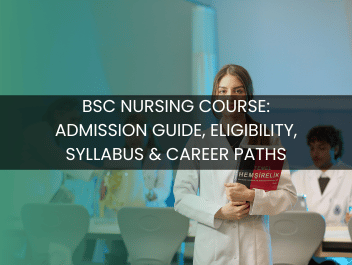
7 Key Situational Interview Questions Every Employer Should Ask
For employers seeking the best talent, the art of interviewing goes beyond the basic resume scanning and straightforward inquiries. Enter situational interview questions, a powerful tool designed to reveal a candidate's ability to handle real-world challenges they may face on the job. Situational based questions, which allow employers to assess crucial skills such as problem-solving abilities and adaptability, can often provide more insightful evaluations than traditional interview methods.
In the fast-paced world of recruitment, it's essential to match the right person to the job, and situational interview questions empower employers to do just that. These targeted questions not only bring out a candidate’s instincts in handling work-related hurdles but also test their readiness to adapt and thrive in dynamic environments. Exploring the top 36 situational interview questions and answers helps an employer craft interviews that unearth the finest talent.
In this guide, we'll delve into seven key situational interview questions every employer should ask, offering a blueprint to improve hiring strategies. We will explore how to assess problem-solving skills, evaluate adaptability, and review answers to top situational scenarios, thereby equipping you with the knowledge to enhance your interviewing process.
Table of Content
Understanding Situational Interview Questions
Situational interview questions are a cornerstone of any effective interview process. They are designed to assess a candidate’s ability to handle specific work-related situations. Typically, these questions present a hypothetical situation that the interviewee might face in their role. The aim is to evaluate problem-solving skills, communication proficiency, and leadership ability through the responses of potential employees. In essence, situational interview questions provide a window into how candidates might act under pressure, an aspect crucial for many job positions.
Definition of Situational Interview Questions
Situational interview questions are questions based on hypothetical scenarios that might arise within a job. Unlike behavioral interview questions, which focus on past experiences, these questions envision future possibilities. They are crafted to evaluate a candidate's critical thinking and decision-making skills. For example, a question might be, “How would you handle a situation where you have to deliver a project on time but encounter unexpected delays?†This allows the potential employer to gauge a candidate’s ability to strategize and adapt in unpredictable circumstances.
Purpose of Situational Based Questions
The purpose of situational based questions is to discern a candidate’s approach to problem-solving and how they might fit within the company culture. These questions aim to reveal key soft skills like adaptability, leadership, and interpersonal skills. They also help interviewers understand how a candidate might react in high-pressure situations and predict future job performance. By posing these scenarios, employers can better assess whether a candidate possesses the necessary skills to succeed in the given role, whether it’s as a project manager, customer service representative, or any other position requiring quick thinking and resourceful decision-making.
Importance of Asking Situational Interview Questions
Situational interview questions play a pivotal role in unveiling a candidate's capabilities during the interview process. These questions are designed to assess how job seekers handle hypothetical situations that may arise in their future roles. Unlike traditional queries, situational interview questions require candidates to draw upon their past experiences or envision future responses. They help potential employers gauge candidates' problem-solving skills, adaptability, and ability to deliver positive outcomes. By posing these based questions, employers can gain insight into how candidates might react under pressure. Thus, making it easier to ascertain if they are an ideal fit for the job description of the vacant position.
Assessing Problem-Solving Skills
When it comes to evaluating a candidate's problem-solving skills, situational interview questions are indispensable. These questions compel applicants to describe specific scenarios where they resolved complex issues or made a difficult decision. For instance, a candidate may be asked to explain a time they had to complete a project on time despite facing numerous challenges. This type of behavioral interview question allows the interviewer to assess the candidate's analytical skills and their ability to think critically.
Candidates responding to these questions offer insights into their leadership skills and whether they can lead a team to achieve a positive outcome. Interviewers can look for examples of when a candidate received positive feedback from a previous employer or when they demonstrated interpersonal skills. Understanding how a candidate approaches problem-solving can forecast their success in a potential leadership role or as a project manager.
Evaluating Adaptability and Flexibility
Evaluating a candidate's adaptability and flexibility is crucial, especially in today's ever-changing work environments. Situational interview questions designed to assess these traits often focus on how candidates handle change. For example, a question might be posed regarding a time when the candidate had to adjust to a new team or unexpected circumstances.
In these scenarios, candidates can showcase their communication skills and soft skills that helped them adapt effectively. They might describe participating in team meetings or taking on a project outside their typical responsibilities. This puts their ability to learn continuously and embrace change in the spotlight, essential traits for a customer service representative or team leader.
In summary, situational interview questions are a valuable tool for employers. They provide deeper insights into a candidate's potential, ensuring that those who possess the right mix of adaptability, analytical skills, and leadership capabilities are selected. Embracing these questions gives employers a competitive edge in finding candidates who are not only qualified but are likely to contribute positively to the company's success.
Top 36 Situational Interview Questions and Answers
Situational interview questions are an essential part of modern job interviews, helping employers understand how potential employees think on their feet. These questions, often based on hypothetical or past experiences, allow an employer to gauge a candidate’s problem-solving and decision-making skills. Here, we present an outline of the top 36 situational interview questions and answers to help you prepare and shine in your next job interview.
1. Describe a situation where you had to deal with a difficult team member.
In any job, teamwork is key. A common situational interview question involves dealing with challenging team members. This question is designed to assess your interpersonal skills and your ability to maintain professionalism. A good answer highlights your problem-solving skills and attempts to find a positive outcome.
2. Can you give an example of a time you managed a tight deadline?
Handling tight deadlines is a reality in many work environments. When asked about managing tight deadlines, it’s vital to illustrate your time management and organizational skills. Discuss specific strategies you used to ensure the project was completed on time and the process you followed to remain calm and efficient.
3. How would you handle a conflict with a supervisor?
Handling conflicts with supervisors can be tricky, and how you approach this hypothetical situation speaks volumes about your communication skills. Your answer should reflect your ability to address differences diplomatically and work towards a mutual understanding. It’s an opportunity to demonstrate your empathy, leadership skills, and ability to foster a collaborative atmosphere.
4. Tell me about a time you had to adapt to a major change at work.
Adaptability is crucial in today’s fast-paced work environment. When discussing adapting to change, focus on your flexibility and willingness to embrace continuous learning opportunities. Provide a specific example where you successfully navigated a major change, highlighting your analytical skills and positive attitude.
5. Describe a scenario where you had to make a decision with incomplete information.
Making decisions with limited information tests your analytical skills and judgment. Employers want to see how you handle uncertainty in your previous role. Share a specific situation where you had to weigh options and make a quick decision, emphasizing your strategic thinking and problem-solving competencies.
6. What would you do if you were assigned a project outside your expertise?
Situational questions about handling unfamiliar projects assess your flexibility and learning potential. When presented with such a project, discuss your proactive steps toward gaining the requisite knowledge. This is an opportunity to showcase your resourcefulness, teamwork, and how you leverage collective knowledge to achieve a positive outcome.
7. Share an instance where you went above and beyond to complete a task.
Employers value employees who demonstrate initiative and dedication. When asked to share an instance where you exceeded expectations, focus on your motivation and the steps you took to deliver excellence. Highlight a specific accomplishment that brought positive feedback and improved the team’s or company’s success.
Using these situational interview questions as a guide will help you reflect on relevant past experiences and prepare thoughtful, strategic responses that will impress potential employers. Practicing these scenarios will enhance your ability to communicate your skills effectively in the interview process, leading you to success.
Effective Techniques for Answering Situational Questions
Situational interview questions can catch many candidates off guard during the job interview process. They focus on hypothetical situations requiring quick thinking and analytical skills. Utilizing effective techniques can help candidates provide clear and structured responses to these challenging questions. These techniques ensure that candidates can convey their problem-solving skills and potential to handle similar situations in their desired roles. One well-regarded approach to mastering situational questions is the STAR method. Being honest and specific in your responses is also essential, as is learning from past experiences. Leveraging these strategies can significantly enhance a candidate's chances of making a positive impact during an interview.
Using the STAR Method
The STAR method is a useful tool for delivering organized and thoughtful responses to situational and behavioral interview questions. STAR stands for Situation, Task, Action, and Result. By structuring your answers around these four components, you can provide a complete and logical explanation of how you've handled situations in the past.
Begin by setting the stage with a brief description of the Situation you faced in your previous role. Outline the Tasks you were responsible for and describe the Actions you took to address the issue. Finally, explain the Result of your actions, highlighting any positive outcomes or what you learned from the experience. This method not only strengthens your responses but also demonstrates your communication skills and ability to maintain clarity under pressure.
Being Honest and Specific
Honesty is a crucial trait when answering situational interview questions. Potential employers value candidates who can be truthful about their capabilities and experiences. When responding, it is essential to be specific about your prior roles and how your skills apply to hypothetical situations. Generic answers can seem vague and may not reflect your true abilities.
By providing specific examples from your past, you can better illustrate your interpersonal skills and leadership skills. You can detail how you worked in a team setting or handled a difficult decision. This specificity ensures that your answers are believable and relatable, which can increase your chances of receiving positive feedback from interviewers.
Learning from Past Experiences
Learning from past experiences is a vital aspect of preparing for situational interview questions. Reflect on your previous roles and identify moments where you showcased problem-solving skills or managed to complete a project on time. These instances can serve as a rich source of examples during the interview.
When talking about these experiences, emphasize your continuous learning and ability to grow from challenges. Discuss how you've applied these lessons to enhance your job performance or contribute to team meetings. Demonstrating a commitment to learning showcases your analytical skills and potential as a valuable team leader or project manager. Such qualities are often sought after by employers looking for candidates who thrive in leadership roles and can deliver a positive outcome in various situations.
Conclusion
Situational interview questions are critical in assessing a candidate's potential and skills. They provide a glimpse into how someone might perform in a job by exploring their past experiences and responses in hypothetical situations. These based questions are essential tools for employers who strive to select only the best candidates for their organization. Understanding the top 36 situational interview questions and answers can guide both interviewers and interviewees toward a successful job interview experience. By focusing on situational questions, employers can predict how a candidate will handle future challenges and make informed hiring decisions.
Recap of the Importance of Situational Questions
Situational interview questions are more than just queries about past experiences. They reveal a candidate's problem-solving skills, interpersonal skills, and leadership role capabilities. By asking these questions, potential employers can assess whether a candidate's previous role equipped them for the challenges of the current position. Such questions often require candidates to explain their thought processes and the steps taken to achieve a positive outcome. This insight helps in understanding their analytical and communication skills, both crucial in various work environments. In sum, situational questions offer a comprehensive view of a candidate’s abilities.
Encouragement for Employers to Implement Situational Questions
Employers should integrate situational questions into their interview process. These questions help identify candidates with the right job description fit by evaluating their experience and responses. The STAR method, often used with these questions, allows candidates to structure their answers showing clear results and outcomes. Moreover, this approach helps determine candidates' soft skills, such as teamwork or decision-making, crucial for any leadership skills development. By using situational questions consistently, employers not only streamline the interview process but also increase their chances of hiring individuals who will thrive in their roles, ensuring successful team meetings and projects.
Frequently Asked Question’s (FAQ’s)
iDreamCareer (iDC) offers a range of services to help students uncertain about their career paths. Some of these services include- Personalized Career Assessments: Students undergo assessments to identify their strengths, interests, and personality traits. One-on-One Counseling Sessions: Trained career counselors provide guidance and support to help students explore career options. Career Roadmap Creation: Students receive a tailored career roadmap outlining steps to achieve their career goals. College Application Guidance: Trained career counselors can help shortlist colleges and universities to apply to, and support in the application process. Personalized Dashboard: Access to information about 550+ career pathways, 30,000+ Indian colleges, and 1000+ examinations and scholarships. Also includes options to chat with your counselor, check counseling session outcomes, view suggested career paths, explore careers through games, and more. We ensure that the counselors meet rigorous standards, providing students with expert guidance and support.
Career Roadmap Creation: Students receive a tailored career roadmap outlining steps to achieve their career goals. College Application Guidance: Trained career counselors can help shortlist colleges and universities to apply to, and support in the application process.
Looking For Job Satisfaction on the long run?
Please feel free to contact our experts
Call to ask any question
+91-9319336222Monday to Saturday
(9:00 AM to 8:00 PM)Resent Blogs
10 Things to Do During an Interview to Impress Your Future Employer
Learn MoreCrafting Your Personal Narrative: A Guide to Writing About Yourself
Learn MoreTop 10 Essential Interview Questions and Expert Answers for 2025
Learn MoreAce Your Next Interview: Essential Questions and Expert Answers for 2025
Learn MoreFirst-Time Manager Interview: Crucial Questions and Strategies for Success
Learn More150 Essential General Knowledge Questions for Interviews in 2025
Learn MoreMaster the Google Interview: Strategies for Success in 2025
Learn MoreHow Can You Describe Yourself Professionally? 5 Key Strategies You Need to Know
Learn MoreMastering the Art of How to Take Interview: Essential Techniques for Success
Learn More25 Essential HR Interview Questions and Answers PDF You Can't Ignore
Learn More7 Tips to Ace Your HR Screening Round and Land Your Dream Job
Learn More10 Essential Tips for Acing Your Interview Exam
Learn More5 Unique Interview Format Examples to Stand Out in Your Next Interview
Learn More5 Powerful Techniques for a Memorable Interview Introduction
Learn MoreMaster Your Next Interview with These Top Interview Preparation Apps
Learn MoreMastering the Art: Top Interview Questions for 12th Class Students
Learn More7 Must-Know Interview Questions for Freshers to Ace Your Job Hunt
Learn MoreMastering Interview Questions for HR Position with Answers: Strategies for Success
Learn More12 Essential Interview Questions for Recruiter Position You Should Prepare For
Learn More10 Must-Know Interview Questions UK Employers Love to Ask
Learn More10 Creative Interview Writing Examples to Spark Your Imagination
Learn More15 Essential Managerial Interview Questions for Freshers to Prepare
Learn More15 Unique Marketing Interview Questions You Haven't Prepared For
Learn More7 Key Strategies for a Successful Mock Interview Session
Learn MoreThe Ultimate Guide to Model Interview Questions: What You Need to Know
Learn More5 My Self Question Exercises to Unlock Your True Potential
Learn More10 Normal Questions That Can Spark Deep Conversations
Learn More15 Essential Personal Interview Questions for Freshers to Ace Your Next Job
Learn More10 Essential Phone Interview Questions You Can’t Afford to Ignore
Learn More15 Essential Sales Interview Questions and Answers for Freshers
Learn More7 Key Situational Interview Questions Every Employer Should Ask
Learn More15 Essential Software Developer HR Interview Questions You Need to Prepare For
Learn MoreMastering the Technical Interview: Essential Questions and Answers
Learn MoreTop Strategies for Responding to Tell Me About Yourself in a Student Interview
Learn MoreTop 10 Interview Questions and Expert Answers
Learn MoreMastering the Art of Interviewing: 50 Tough Questions and Smart Answers
Learn MoreHow to Ace Your Next Mock Interview: Tips and Strategies for Success
Learn MoreYour Ultimate Guide: 60 Insightful Questions to Ask Interviewers
Learn MoreCrafting the Perfect Response to Why Do You Want This Job?
Learn MoreUnique Ways to Tackle the Question Why Should We Hire You?
Learn MoreWhy Should We Hire You? - Top 10 Answers for Customer Service Roles
Learn MoreMastering the Art of Discussing Work Experience in Interviews
Learn MoreMastering Your Sales Interview: 50 Essential Questions and Answers
Learn MoreCareer Paths After 12th Commerce: Your Future Starts Here
Learn MoreExplore One-Year Courses After 12th for Non-Medical Students
Learn MoreQuick Career Paths: 2-Year Degree Courses After 12th for Fast-Track Success
Learn MoreComprehensive Guide: Courses After 12th Commerce
Learn MoreTop 10 Lucrative Courses to Consider After Completing Engineering
Learn MoreAdvancing Your Career: Top Choices After B.Tech in 2025
Learn MoreExplore Your Future: After CET Exam Which Course is Best for Aspiring Professionals?
Learn More5 Reasons Why After Inter CEC, Choosing the Right Course is Crucial
Learn MoreAfter PUC Which Course is Best for Aspiring Engineers? Explore Your Options!
Learn MoreUnlocking Your Future: Best Arts and Science Courses After 12th for 2025
Learn MoreWhy a Bachelor Degree in Commerce is Your Pathway to Success
Learn More15 Best Career Courses to Boost Your Earning Potential in 2025
Learn MoreEmerging Career Fields for 2025: What You Need to Know
Learn MoreExploring In-Demand Career Paths After 12th: Science, Arts, Commerce
Learn More15 Lucrative Science Careers You Should Consider
Learn MoreHigh-Paying Career Paths for Girls After 12th Commerce
Learn MoreTop 10 High Salary Career Courses After 12th Biology
Learn MoreTop 10 High-Paying BSc Specializations for 2025
Learn MoreExploring the Future: Innovative Career Paths for B.Tech Graduates in 2025
Learn MoreComprehensive Guide to B.Tech Specializations for MPC Graduates
Learn MoreUnlocking Your Potential: The Ultimate B Tech Job List for 2025
Learn MoreB.Tech Salary Insights: How Much Can You Earn Per Month?
Learn MoreEssential Business Courses After 12th: Your Guide to a Successful Career
Learn MoreHow Commerce Students Can Transition to BSc IT
Learn MoreExploring Career Paths After 12th: Your Guide to Success in 2025
Learn MoreCertainly! Here are 10 additional title ideas inspired by the list you provided
Learn MoreExploring Career Paths After Engineering: Your Guide to the Future
Learn MoreThe Ultimate Guide to Career Options Post-High School Graduation
Learn MoreDiscover the Top 10 Chemistry Courses After 12th That Lead to High-Paying Jobs
Learn MoreExplore the Best Diploma and Certificate Programs After 12th Commerce
Learn MoreCareer Paths for Computer Science Graduates: Top Opportunities to Explore
Learn MoreExplore Top Courses After 12th: Your Path in Science, Arts, or Commerce
Learn MoreTop 10 Courses After 12th Commerce for a Successful Career
Learn MoreTop Paying Professional Courses After 12th for Commerce Students
Learn MoreEmerging Career Paths After 12th Commerce Without Maths
Learn MoreExploring Career Paths After 12th Science: A Complete Guide
Learn MoreComprehensive Guide to Courses and Career Paths after 12th Grade
Learn MoreEmerging Career Paths in India: What to Expect in 2025
Learn MoreTop Diploma Paths for Students After Completing 12th Science
Learn MoreTop 15 Easiest High-Paying Jobs to Pursue in India by 2025
Learn MoreNavigating Your Future: Easy Degree Options After 12th
Learn MoreExploring Top Engineering Branches After 12th: A Comprehensive Guide
Learn MoreExploring Advanced Studies: Top Entrance Exams for Engineering Graduates
Learn MoreMBA Salary Insights: Top Packages and Compensation Trends in India
Learn MoreTop 15 Lucrative Careers in India for 2025
Learn MoreTop 10 High-Paying Jobs for Commerce Graduates Without Maths
Learn MoreTop 10 High Salary Courses After 12th PCB for Future Success
Learn MoreHigh-Earning Courses to Pursue After 12th Science in 2025
Learn MoreHigh Paying Career Paths for BiPC Students: Top 10 Courses to Consider
Learn MoreExploring High-Paying Engineering Degrees for the Future
Learn MoreExploring Integrated Courses After 12th: A Comprehensive Guide for Students
Learn MoreExploring Career Prospects: What Can You Do with a BBA Degree?
Learn MoreTop 15 In-Demand Professional Courses for Commerce Graduates in 2025
Learn MoreExploring Lucrative Job Paths for BBA Graduates in 2025
Learn MoreMBA Full Form Explained: Master of Business Administration & Its Strategic Career Value
Learn MoreBBA Full Form: The Definitive Guide to BBA Degrees, Admissions, & Career Paths
Learn MoreBCA Full Form Explained: Your Complete Guide to the Degree, Admission & Career Scope
Learn MoreIAS Full Form: Indian Administrative Service Explained & Its Pivotal Role
Learn MoreMBBS Full Form: Unraveling the Meaning Behind a Doctors Qualification
Learn MoreUPSC Full Form: Union Public Service Commission and Its Vital Role
Learn MoreBSc Full Form: Bachelor of Science & What It Means for Your Future
Learn MoreITI Full Form: What Exactly is Industrial Training Institute?
Learn MoreLLB Full Form: Your Ultimate Guide to Bachelor of Laws, Eligibility & Career Scope
Learn MoreIs There a True Computer Full Form? Unpacking the Popular Acronym
Learn MoreB.Tech Full Form Unpacked: Meaning, Scope, and Why It Matters for Your Career
Learn MoreIIT Full Form: Unveiling the Indian Institute of Technology and Its Legacy
Learn MoreMCA Full Form Revealed: Master of Computer Applications & Its Significance
Learn MoreIIT Full Form: Indian Institute of Technology – Understanding Its Legacy, Campuses, and Global Standing
Learn MoreYour Complete Guide to Becoming a Veterinarian: Education, Specialties & Career Paths
Learn MoreBSc Degree: Your Complete Guide to Courses, Careers, and Future Prospects
Learn MoreB.Com Full Form Unveiled: What Bachelor of Commerce Truly Means
Learn MoreBAMS Full Form: Bachelor of Ayurvedic Medicine and Surgery — Unpacking Its Meaning & Career Scope
Learn MoreWhat is a Polytechnic? Your Complete Guide to Courses, Admissions & Career Paths
Learn MoreSSC GD Constable Exam News 2025-26: Latest Updates on Vacancies, Dates & Application
Learn MoreHow to Choose the Best Veterinarian for Your Pet: A Comprehensive Guide
Learn MoreAir Hostess 2026: Your Complete Roadmap to Landing the Dream Job
Learn MoreUnlocking Your Future: The Ultimate BSc Degree Guide (Courses, Careers & Admissions)
Learn MoreCMA Full Form: Certified Management Accountant (Global Standard Explained)
Learn MoreNACH Full Form Explained: What It Is & Why It Matters in Banking
Learn MoreThe Modern Anthropologist: Understanding Their Role, Impact, and Diverse Specializations
Learn MoreBBA: Your Ultimate Guide to Course Details, Admission, Fees, and Future Career Prospects
Learn MoreBDS Full Form Unpacked: Your Essential Guide to Dentistry Courses, Admissions & Career Scope
Learn MoreBHMS Full Form Revealed: Your Complete Guide to Bachelor of Homeopathic Medicine & Surgery
Learn MoreB.Tech Admissions 2026: Your Complete Guide to Courses & Eligibility
Learn MoreCFA Full Form: Understanding the Chartered Financial Analyst Designation
Learn MoreMerchant Navy Salary in India: Unveiling Pay Scales by Rank & Experience
Learn MoreTS EAMCET 2026: Official Notification, Exam Dates & Application Guide
Learn MoreVITEEE 2026: Full Guide to Application, Dates, Syllabus & Preparation
Learn MoreBMS Full Form: Unveiling Bachelor of Management Studies & What it Entails
Learn MoreB.Sc. Computer Science: Your Complete Guide to Courses, Careers & Eligibility
Learn MoreComputer Science Explained: From Basics to Advanced Concepts
Learn MoreWorlds Most Difficult Exams: A Definitive Ranking for 2025
Learn MoreUnion Public Service Commission (UPSC): All You Need to Know
Learn MoreBE Full Form Explained: What Bachelor of Engineering Means & Your Career Path
Learn MoreDMIT Full Form Revealed: Unpacking the Dermatoglyphic Multiple Intelligence Test
Learn MoreIndias Most Difficult Exams: The Ultimate Ranking for 2025
Learn MoreCLAT Full Form: Unveiling the Common Law Admission Test + Key Details
Learn MoreHighest Paying Jobs in India: Unveiling the Top 25 Roles & Their Lucrative Salaries
Learn MoreMA Full Form: Unpacking the Master of Arts Degree & What It Entails
Learn MoreMarketing Management Explained: Core Concepts & Strategic Implementation
Learn MoreBCA Course Subjects: A Comprehensive Guide to Your IT Degree Curriculum
Learn MoreCAT Exam Date 2026: When to Apply & Exam Schedule Revealed
Learn MoreCDS Full Form: Unveiling Combined Defence Services & Your Path to Commission
Learn MoreLab Technician Career Path: Duties, Skills, and Salary Guide
Learn MoreYour Complete Guide to Becoming a Successful Software Developer
Learn MoreAir Hostess Course Guide: Everything You Need to Know for Your Aviation Career
Learn MoreIntroduction: Navigating Your Path to Medical Excellence in India
Learn MoreTop Commerce Courses After 12th: Unlock Lucrative Career Paths
Learn MoreTop Industrial Training Institutes: Your Guide to Skilled Trades
Learn MoreUnderstanding Psychometric Tests: Your Definitive Guide & Free Examples
Learn MoreWhat Does a Surgeon Do? A Comprehensive Guide to the Profession
Learn MoreUG Explained: Your Ultimate Guide to Undergraduate Degrees & Admissions
Learn More10th Pass Govt Jobs 2026: Your Complete Guide to Apply & Secure Your Career
Learn MoreATMA: Your Complete Guide to the Management Admissions Test
Learn MoreBHMS Course Guide: Eligibility, Syllabus, Career Prospects & Top Colleges
Learn MoreUnlock Your Future: The Definitive Guide to Career Counselling
Learn MoreWhat Does a Clinical Psychologist Do? Your Comprehensive Guide
Learn MoreM.Tech Full Form: Master of Technology Explained (Meaning, Scope & Benefits)
Learn MoreRadiology Courses Explained: From Certificates to Masters Degrees
Learn MoreBSc Courses Explained: Full Guide to Specializations, Admissions & Career Paths
Learn MoreBSc Nursing Course: Admission Guide, Eligibility, Syllabus & Career Paths
Learn MoreBA LLB Full Form Explained: Unpacking Bachelor of Arts & Bachelor of Laws
Learn MoreTop BBA Colleges in India: Unveiling the Elite Institutions for Your Management Degree
Learn MoreUPSC CDS Exam Date 2026: Complete Schedule & Notification Details
Learn MoreTop Career-Focused Courses After 12th Grade: Unlock Your Future
Learn MoreExplore the World of Humanities Subjects: A Comprehensive Guide
Learn MoreIPU CET 2026: Complete Guide to Applications, Syllabus & Cutoffs
Learn MoreISI Full Form: Unveiling the Meaning & Importance of the Indian Standards Institute
Learn MoreJEE Advanced 2026 Exam Date: When Will the Exam Be Held?
Learn MoreJEE Main 2026 Result Date: When to Expect Session 1 & 2 Results
Learn MoreMCA Course Guide: Everything You Need to Know About Eligibility, Fees, and Admissions
Learn MoreMultimedia Explained: Your Complete Guide to Definition, Examples, and Impact
Learn MoreThe Ultimate Paramedical Courses List: Find Your Perfect Career Path
Learn MorePharm.D. Program: Your Complete Guide to Curriculum, Admissions & Outcomes
Learn MoreThe Ultimate Guide to Top IIT Colleges in India: Ranking, Admissions, and Courses
Learn MoreATC Full Form: Unpacking Air Traffic Control, Anatomy & More
Learn MoreB.Ed. Course Duration in India: Everything Aspiring Teachers Need to Know
Learn MoreB.Sc Psychology Degree: Your Guide to Admissions, Curriculum & Career Paths
Learn MoreB.Tech Computer Science: Your Complete Guide to Admission, Syllabus & Career Prospects
Learn MoreBDS Course Duration: How Long is Bachelor of Dental Surgery?
Learn MoreBFA Full Form Explained: What is a Bachelor of Fine Arts & Why it Matters
Learn MoreConnet Us
Unlock Your Dream Career Potential - Get Expert Advice From Our Counselling Experts










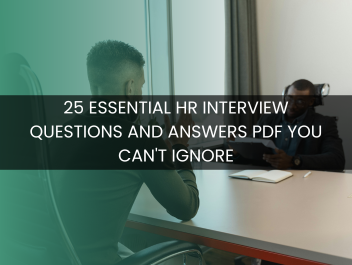




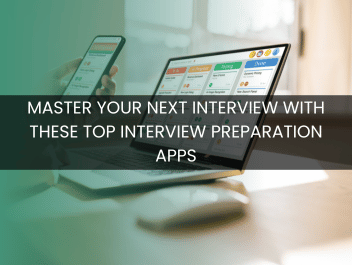















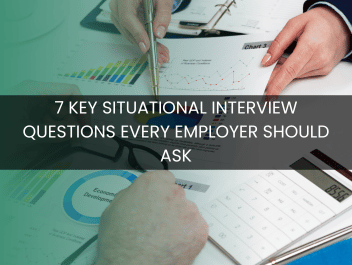






























































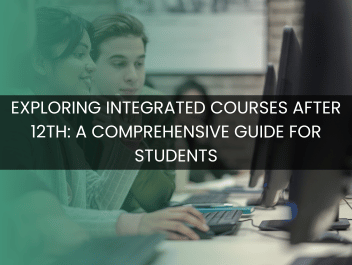






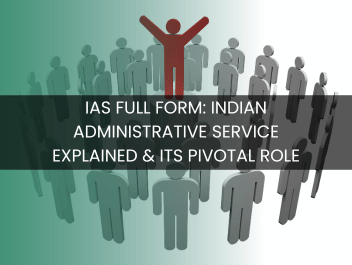










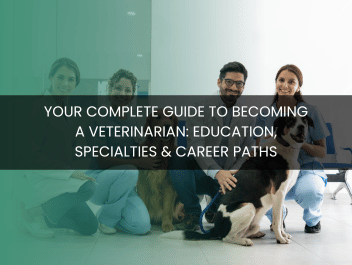




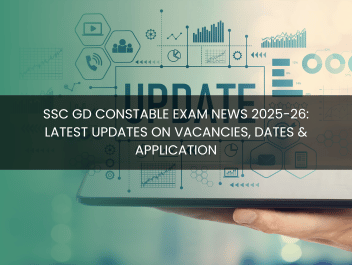


_Thumbnail_.png )
_Thumbnail_.png )














_All_You_Need_to_Know_Thumbnail_.png )






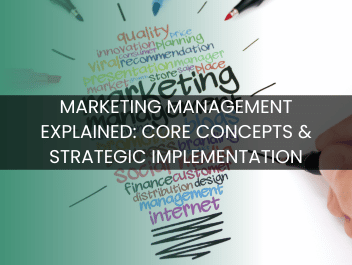












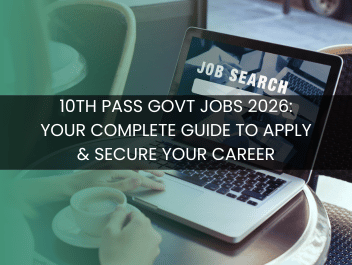




_Thumbnail_.png )


